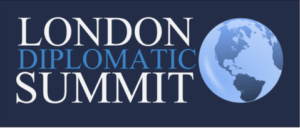THE THIRD EDITION OF THE LONDON DIPLOMATIC SUMMIT
Friends House 173-177 Euston Rd, London NW1 2BJ, United Kingdom
The London Diplomatic Summit will continue its thought leadership platform for policy makers, experts and youth leaders, to address difficult questions about the current diplomatic practices and arrangements, regarding their relevance, efficiency and effectiveness in dealing with the challenges of the 21st century.
Artificial intelligence (AI) is having a significant impact upon our daily lives, our work, security, and values. Eventually, our overall global order will become a result of AI supremacy. Countries and regions will have their status defined by how advanced the AI field is. The New World Order is staring to take shape with three distinctive groups:
1- The SUPERPOWERS
The United States (US), the origin of most AI-powered monopolies such as Google, Facebook, Apple, Amazon and Microsoft. With optimal environment for innovation triggered by universities research centers, access to capitals, market; the United States is the current world leader via these giant tech companies.
China, aided by the huge amount of data produced in its large internal market and growing trends of private and public technology innovation and funding, has announced recently its plans to be the world’s AI leader by 2030.
US and China control a great deal of data, investment, talents and markets in the world. The current pattern will expand even more with time. The bipolar world order is heading to be established neatly in the coming decades.
These superpowers are umbrellas for the tech giants that will have the significant lead in this order. Out of the top 100 economies, there will be 69 corporations and 31 states.
2- THE JUST ABOUT MANAGING REGIONS
The presence of data, infrastructure, capital and market are the driving factors for advancement of AI. While some countries or regions have developed some of these areas, they still struggle to have the full set. This slows down their AI breakthrough. Europe, Russia, ASEAN countries, Canada and Australia are regions that can develop AI capabilities, but they lack the edge to compete with the superpowers. They may ally with one of them or try to protect their internal market. The Transatlantic Trade and Investment Partnership was intended to achieve an alliance between Europe and the United States that would empower their presence in the AI order. But as negotiations were suspended under the Trump administration, the whole deal may be rekindled at some point in the future.
The fact the AI is still in its infancy, there are opportunities for these regions to chase the leaders and catch up in the field. There are opportunities for regions to create alliances to keep up with the AI race by sharing resources, funding and exchange of innovation and research, and market access.
3- THE LEFT BEHIND
These countries that haven’t developed any AI capabilities due to lack of resources, infrastructure and policies to advance these fields. These regions will start losing competitiveness in their traditional economic fields. Unfortunately, most of the world will be in the group of the left behind. This may include the whole of Africa, Latin America, South Asia, Central Asia, Middle East, and part of southeast Asia.
Will the rules of the game be set only by the superpowers as in the 20th century world order? What governance system and regulations help manage the new order? How can we integrate the left behind and most vulnerable regions and avoid widened inequalities? What alliances and policies can help the just managing regions to stay relevant and catch up with the superpowers? Will the current political, social and economic system still be efficient in the new order?



